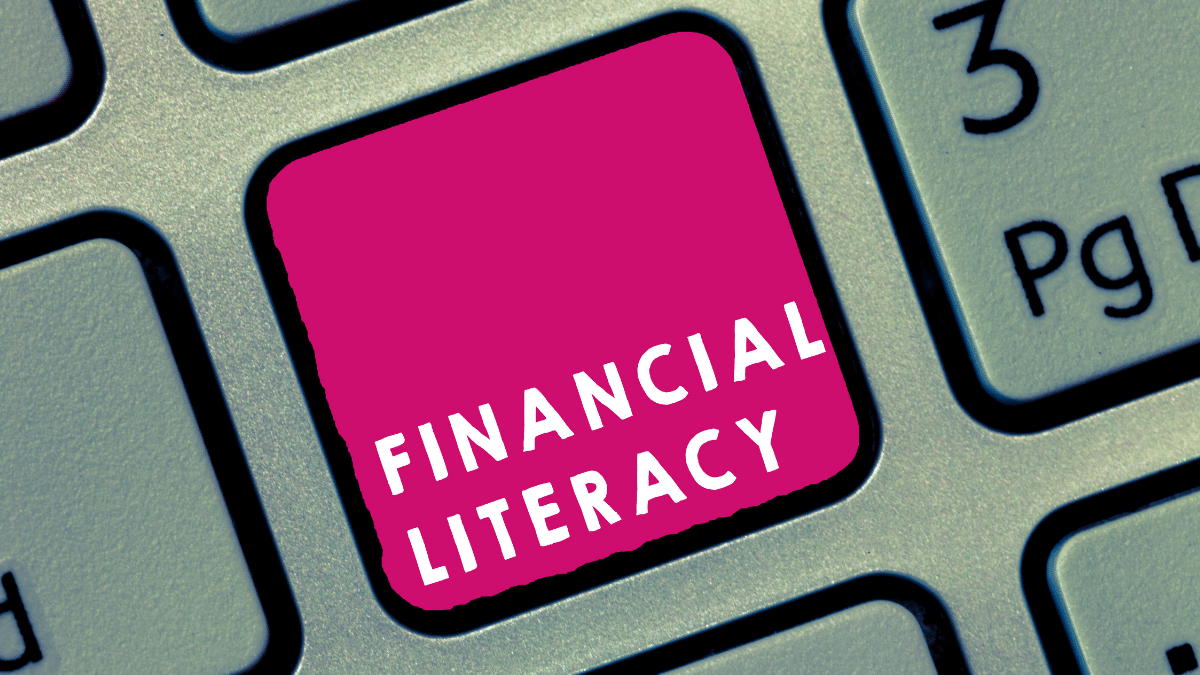Financial Literacy in South Africa: What You Need to Know to Thrive

Ever feel like your money disappears right after payday?
You’re not standing isolated from the queue!
It is no secret that many South Africans struggle with budgeting, saving, and managing debt.
Whether you’re attempting to get by, save for your dream house, or simply break the cycle of living paycheck to paycheck, you cannot overlook the importance of understanding the fundamentals of financial literacy in South Africa can turn everything around.
So let’s break it down together. No judgment.
Just real talk and practical advice that works in South Africa’s financial climate.
What Is Financial Literacy — And Why Does It Matter?
Financial literacy is knowing how money works — and how to make it work for you.
It’s understanding the difference between needs and wants.
It’s having a plan for every rand you earn.
And in South Africa, this is especially important.
According to the Financial Sector Conduct Authority (FSCA), only 51% of South Africans are financially literate. Many don’t understand basic concepts like compound interest or credit scores — and this puts them at risk of falling into debt traps.
Here’s the truth:
- Being financially literate gives you power.
- Power to avoid unnecessary debt.
- Power to grow your savings.
- Power to plan for a future that excites you.
Let’s dive into how you can do that — step-by- step.
Step 1: Master the Art of Budgeting
Budgeting is not a buzzword. It’s the foundation of everything.
A budget is just a plan for how you’ll spend (and save) your money each month.
And yes — it can be flexible. Life happens.
But without a budget, your money will always control you instead of the other way around.
Here are some practical budgeting tips for South Africans:
-
Start with your income
How much do you really take home each month after taxes and deductions?
-
List your fixed expenses
These are things like rent, school fees, transport, or loan repayments.
- Track your variable expenses
Groceries, electricity, airtime/data, takeaway food, entertainment.
Use a budgeting app like 22seven (a local favorite) or just a simple spreadsheet.
- Allocate your spending using the 50/30/20 Rule
- 50% for needs (housing, food, transport)
- 30% for wants (lifestyle, hobbies)
- 20% for savings and debt repayment
- Or better yet — adjust those numbers to suit your life.
- The point is to be intentional.
-
Review and adjust every month
Got a bonus? Used more electricity than usual? Update your budget.
Your budget should evolve with you.
Step 2: Tackle Your Debt Head-On
Let’s talk about debt management.
Because in South Africa, debt is a big deal.
According to recent reports, the average South African spends over 63% of their income servicing debt.
Credit cards. Store accounts. Personal loans. It adds up quickly.
But here’s the good news — you can take control.
Here’s how to start:
- List all your debts: Include the total amount, monthly repayment, and interest rate.
- Prioritize high-interest debt: Focus on settling things like credit cards first. They eat into your money the fastest.
- Try the snowball method: Start with the smallest debt. Pay it off. Then use that money to tackle the next one.
- Don’t take on new debt if you don’t need to: Especially for luxury items or non-essentials.
- Negotiate with creditors: If you’re struggling, talk to your bank or creditor. Many offer debt consolidation or repayment plans.
The goal here is simple:
Free up your income so you can start building wealth instead of just managing debt.
You may also like: Beginner’s Guide to Financial Literacy in South Africa (Free Course Inside)
Step 3: Save Like Your Future Depends on It (Because It Does)

Let’s face it — savings strategies in South Africa can feel impossible.
But saving is not about how much you earn.
It’s about consistency.
Whether it’s R50 a week or R500 a month — it all adds up.
Here are smart savings strategies you can start today:
-
Automate your savings
Set up a debit order to move money to your savings account the moment you get paid.
-
Use different savings buckets
One for emergencies. One for goals (like a holiday). One for long-term investments.
-
Cut invisible expenses
Cancel unused subscriptions. Limit takeaways. Buy groceries in bulk.
-
Consider a stokvel
South Africa has a strong culture of group saving. If you trust your group, it’s a great way to stay disciplined.
Remember: Your savings are your safety net.
And everyone needs a safety net.
Read More: How Live Financial Sessions Help You Make Smarter Investment Choices?
Step 4: Plan for Retirement — Even If It Feels Far Off
We get it. Retirement feels like ages away.
But the earlier you start, the better off you’ll be.
And in South Africa, where social grants offer only basic support, it’s crucial to plan.
Here’s how to approach retirement planning wisely:
-
Start with what your job offers
Does your company have a pension or provident fund? Great — start contributing more if you can.
-
Open a Retirement Annuity (RA)
You can do this through banks or financial service providers. It’s tax-deductible, which is a bonus.
-
Avoid cashing out early
Even if you change jobs, preserve your retirement savings.
-
Consult a financial advisor
If possible, get professional guidance. Some affordable advisors work specifically with young professionals.
You don’t want to reach 60 and realize you’ve got nothing saved.
Future you will thank you for starting now.
Step 5: Protect What You’re Building
Financial literacy isn’t just about budgeting and saving — it’s about protecting your progress.
That means insurance. Wills. Emergency funds.
Think of these as your financial seatbelts.
-
Get a life and disability cover
Especially if you have kids or family who rely on your income.
-
Have an emergency fund
Aim for 3–6 months’ worth of expenses saved.
-
Write a basic will
Yes, even if you’re young. It’s part of being financially responsible.
Small actions today = peace of mind tomorrow.
Step 6: Teach Others (Especially Your Kids)
Here’s the final step: pass it on.
Talk about money with your family. Teach your children how to budget.
Make financial literacy a regular topic around the dinner table.
South Africa’s next generation needs to be more financially empowered than the last.

Final Thoughts
Becoming financially literate doesn’t happen overnight.
But it does happen one decision at a time.
From following solid budgeting tips to embracing savings strategies to working on your retirement planning — each step puts you in control.
South Africa has its challenges, yes.
But you’ve also got tools, knowledge, and community on your side.
So take that first step.
Open that spreadsheet.
Talk to your partner.
Start saving — even if it’s just R10 today.
Your financially free future starts now.
FAQs: Financial Literacy in South Africa
-
How can I improve my personal finances in South Africa without earning more?
Start by creating a budget, cutting unnecessary expenses, and sticking to a savings plan.
You don’t need more income — you need better money habits.
-
What’s the best budgeting method for South Africans?
The 50/30/20 rule is a good start, but adjust it to fit your life. Using local tools like 22seven can help you track and manage your money more easily.
-
Is debt always bad?
Not always. Some debt (like a home loan) can build wealth. But bad debt (like credit card debt for non-essentials) drains your finances. Focus on smart debt management.
-
How much should I be saving monthly?
Try to save at least 20% of your income if possible. Even 5–10% is a great start if money is tight.
-
When should I start retirement planning?
Now. This applies even if you’re 25 years old.
The earlier you start, the more time your money has to grow through compound interest.





